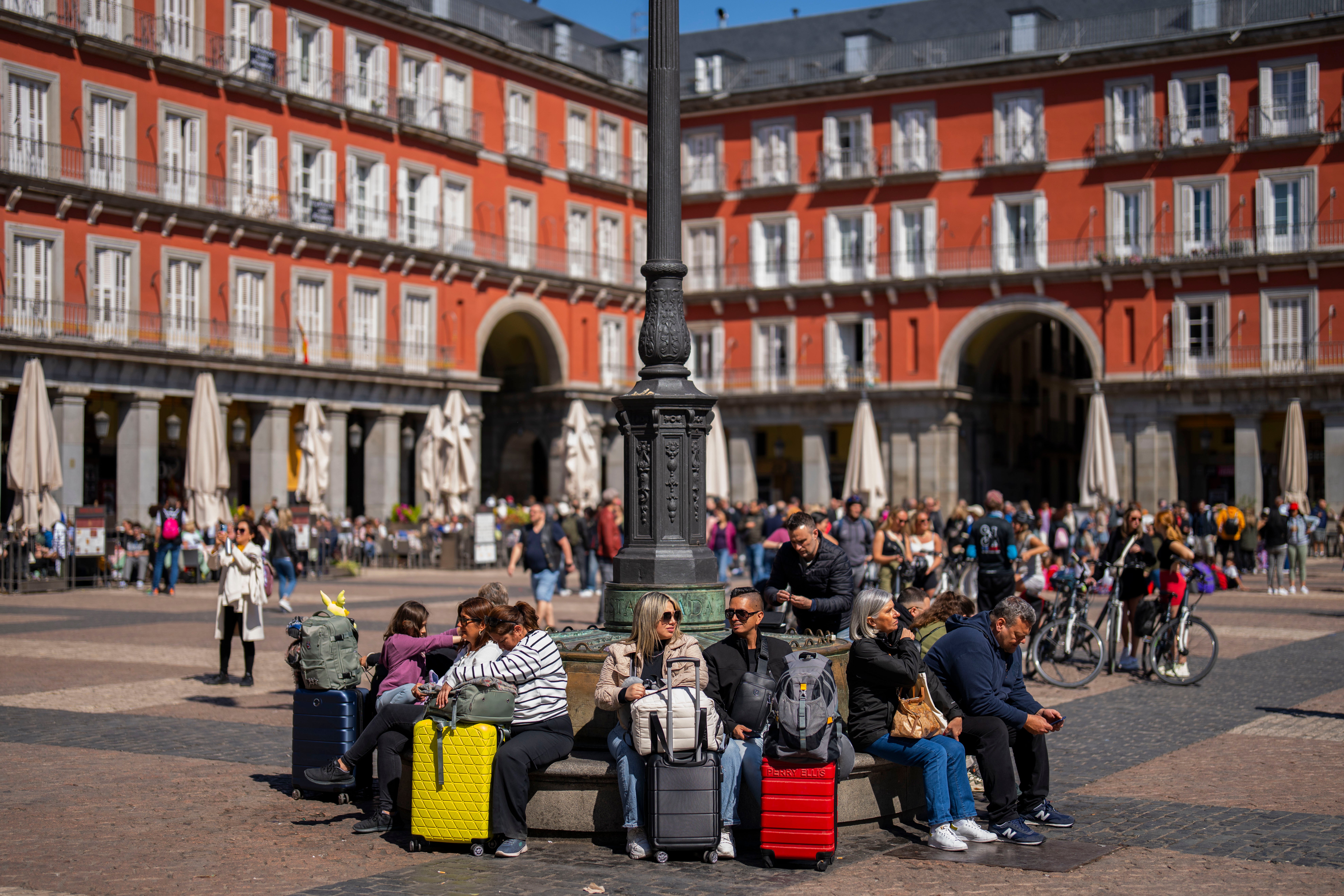Spain's economy is facing challenges due to the millions of tourists who visit the country each year, according to Economy Minister Carlos Cuerpo.
Last year, Spain welcomed a record 94 million international visitors, and projections suggest that this number could rise to 100 million this year.
While tourism is a key sector for the Spanish economy, Mr Cuerpo said that the government can no longer afford to ignore the challenges that come with such high numbers of visitors.
"It’s important to understand that these record numbers in terms of tourism also pose challenges," he said on Tuesday.
"And we need to deal with those challenges also for our own population."
Spain's economy grew faster than any other major advanced economy last year, at 3.2 per cent, and is projected to grow at 2.4 per cent this year, according to the Bank of Spain.

However, a housing crisis, in which home and rental costs have skyrocketed in cities such as Madrid and Barcelona, has led to growing frustration about the proliferation of short-term rental apartments in city centres.
The country has seen several large protests that have drawn tens of thousands of people to demand more government action on housing. Signs at demonstrations with slogans such as “Get Airbnb out of our neighborhoods” point to the growing anger.
In response, the government recently announced it was cracking down on Airbnb listings that it said were operating in the country illegally, a decision that the company is appealing.
“We are a 49 million-inhabitants country," Mr Cuerpo said.
The record numbers of tourists illustrate the “attractiveness of our country, but also of the challenge that we have in terms of dealing and providing for a good experience for tourists, but at the same time avoiding overcharging (for) our own services and our own housing”, he said.
The Bank of Spain recently said the country has a deficit of 450,000 homes. Building more public housing is critical to solve the problem, Mr Cuerpo said. Spain has a lower stock of public housing than many other major European Union countries.
“This is the key challenge for this term,” the minister said of the country's housing woes.
On the possibility of more US tariffs on EU goods, the top economic policymaker for the eurozone's fourth-largest economy said he believed the EU still wanted to reinforce economic ties with the US.
“From the EU side, we are constructive but we are not naive," Mr Cuerpo said, adding that the bloc would pursue “other routes protecting our firms and industries” if no agreement with the Trump administration can be reached.

A 90-day pause on tariffs announced by the EU and the US is slated to end on 14 July. About halfway through that grace period, US President Donald Trump announced 50 per cent tariffs on steel imports.
The US has also enacted a 25 per cent tariff on vehicles and 10 per cent so-called reciprocal tariffs on most other goods.
On how Spain's current housing woes got here, the minister said a steep drop in construction in Spain following the 2008 financial crisis played a role. So did population growth due to immigration, Mr Cuerpo said, and pressures from an increase in the number of tourists.
While building more housing is key, the minister advocated for an all-of-the-above approach, including regulating Spain's housing market and short-term rental platforms.
“For us, there’s no silver bullet,” he said.







